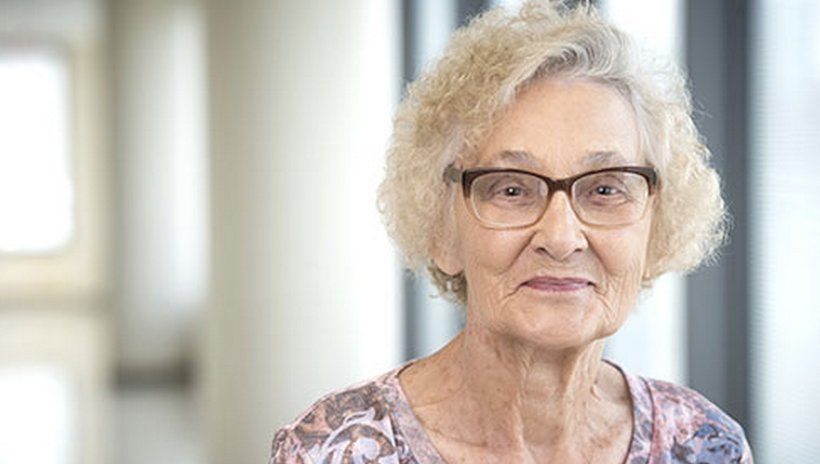
BIRMINGHAM, Ala. — 82-year-old patient and Atmore native, Dorothy Moore, has experienced her fair share of heart problems, but a recent innovation at UAB still undergoing FDA approval could drastically improve her quality of living.
In 2004, with pre-existing heart murmurs, Moore blacked out while walking to her car, and after the incident, underwent surgery to receive an artificial heart valve. That was over ten years ago, and earlier this year, after slowing down once more and experiencing breathing problems, Moore was recommended by doctors at UAB to try an experimental procedure— a valve-in-valve transcatheter aortic valve replacement (TAVR).
This noninvasive procedure is used for high-risk patients who have had previous tissue valve replacements. This surgical procedure repairs the valve without removing the old, damaged valve. Instead, it wedges a replacement valve into the aortic valve’s place.
“Over time, these artificial valves that are made of animal tissue wear out, becoming narrowed, leaky or both. This is a technique that is very useful for previous valve replacement patients who are too high-risk for open-heart surgery,” said James Davies, M.D., chief of the Section of Adult Cardiac Surgery in UAB’s School of Medicine.
Moore had her procedure done at the University of Alabama at Birmingham Hospital earlier this year where expert surgeons and state-of-the-art facilities provided everything for the successful operation. Dr. Davies attributes the rising number of valve-in-valve replacements to advances in modern medicine and people living longer.
Moore was released from the hospital a mere three days after her surgery at UAB hospital.
“She had her surgery on a Monday morning, and I think she could tell a difference at 4 p.m. that afternoon when they got her out of her bed and sat her up in a chair,” Dianna said. “It has been just an amazing thing to see. She’s breathing better. Her appetite got 100 percent better. It was quite a transformation from where she was.”
“I’m doing great. Everyone here at UAB was just terrific — nothing but the best,” Moore said.
The UAB Heart Valve Program is given credit to performing the first TAVR in Alabama, and since then more than 150 patients have benefited from the procedure.
The new TAVR is just one accomplishment in a long list of innovations UAB has embraced and expanded.
The University of Alabama at Birmingham has been ranked among the top universities in the world based on its influence and quality of education. The Children’s of Alabama pediatric hospital, named one of the best in the country, is a private, not-for-profit medical center that serves as the primary site for UAB’s pediatric medicine, surgery, and research and residency programs. Adding to UAB’s reputation are its physicians, who were named among the nation’s top cancer doctors this year.
UAB is the largest academic medical center in Alabama and one of the top four largest academic medical centers in the United States.
Thanks for reading! Let me know what you think about this story on Twitter.
— John James (@john_james_20) August 19, 2015










